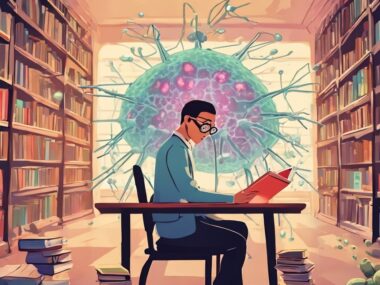Did you know that less than 2% of the global population holds a PhD? That’s right, and I’m on a mission to join this elite group without breaking the bank, by seizing a great opportunity for full tuition at graduate school based on financial need. Navigating through the maze of PhD scholarship opportunities can feel like looking for a needle in a haystack. But, trust me, it’s not all doom and gloom. My journey has taught me that with the right approach and resources, finding that golden ticket to fund your doctoral studies is more than just a pipe dream. It’s a tangible goal that I’m excited to share with you.
Key Takeaways
- Start your search for PhD scholarships early to meet deadlines and have time to prepare strong applications.
- Understand the eligibility criteria for each scholarship to ensure you apply to those you qualify for, saving time and effort.
- Pay close attention to the application process of each scholarship, as requirements can vary widely.
- Crafting compelling applications is crucial; highlight your academic achievements, research interests, and how you can contribute to your field.
- Prepare for interviews by reviewing your application, practicing common questions, and being ready to discuss your research and goals.
- Look into field-specific opportunities, as some scholarships are tailored to particular areas of study, offering better chances for those who qualify.
Understanding PhD Scholarships
Types Available
Grants
Grants offer a solid foundation for PhD studies. They often focus on research and projects. It’s crucial for doctoral students to find grants and scholarships that match your study area, considering funding and scholarship website eligibility. This ensures they align with your interests. To apply, you’ll need specific documents by certain deadlines.
I once navigated this maze of requirements for a grant in environmental science. It taught me the importance of organization and attention to detail in school work, providing a description that resonates with students.
Fellowships
Fellowships like the Fulbright Program are prestigious. They support research across borders. Benefits include financial aid, networking, and professional growth. For these, knowing the eligibility criteria is key. Also, preparing a standout application helps.
During my search, I focused on fellowships, scholarships, and grants from universities and schools that offered opportunities abroad. This approach broadened my academic and cultural horizons.
Benefits Gained
Financial Support
Scholarships, grants, and assistantships provide financial help. Applying early increases your chances of receiving aid. Keeping up academic performance is crucial for continued support.
From personal experience, balancing a teaching assistantship work with my studies and scholarships for students at school was challenging but rewarding. It sharpened my time management skills significantly.
Networking Opportunities
Networking is vital during your PhD journey. Attending events can connect you with peers and leaders in your field. Alumni networks and advisors also offer valuable mentorship.
I found attending international conferences invaluable for networking. It opened doors to collaborations with universities that enriched my dissertation work, thanks to grants and scholarships from the school.
Eligibility Criteria
Academic Requirements
To be considered for a PhD scholarship, candidates must meet certain academic standards for eligibility. Most programs require a master’s degree or equivalent in a related field. This ensures that candidates have the necessary background knowledge.
Maintaining a high GPA is crucial. It demonstrates your ability to excel academically. Relevant subjects should be your focus, as they prepare students, candidates for scholarships, and programs for advanced study in your field.
A strong research proposal can set you apart. It shows your potential as a researcher. I learned the importance of this firsthand when applying for scholarships for my PhD program, and how it impacts students and candidates for various programs. A well-prepared proposal made my application stronger.
Field Specificity
Humanities
Scholarships often target specific disciplines within the humanities. They support research that crosses traditional boundaries. Interdisciplinary research is highly valued.
Cultural studies, languages, and history are central to understanding our world. They offer insights into how societies evolve. My experience attending a humanities symposium was transformative. It expanded my network and exposed me to new ideas.
Social Sciences
ial sciences scholarships focus on projects with societal impact. These fields help us understand human behavior and social structures.
Engaging in fieldwork and case studies is beneficial. It may strengthen your research proposal by providing real-world context for students, scholarships, and candidates. During my doctoral studies, conducting fieldwork deepened my understanding of social dynamics.
Application Process
Submission Deadlines
Keeping track of submission deadlines is crucial. These dates are your lifeline in the application process for PhD scholarships and programs. I learned the hard way that missing a deadline for scholarships can set students back an entire year.
Creating a detailed timeline early on helped me immensely. This included drafting my personal statement, securing recommendation letters from professors familiar with my work as a student, and filling out the form on each program’s website for scholarships. It made the whole process less overwhelming.
I recommend setting digital reminders for all your important deadlines. This ensures students won’t miss submitting any required documents for scholarships on time.
Required Documents
Personal Statements
Crafting a compelling personal statement is key. It should paint a picture of your academic journey as a student and pinpoint your research interests for scholarships. Make sure it reflects the values and goals of the scholarship or program you’re eyeing.
Tailoring your statement is critical. I spent weeks refining mine to match each program’s ethos, which paid off in the end with scholarships for students.
Seek feedback from mentors or students or peers to polish your personal statement for scholarships. Their insights were invaluable to me, providing perspectives I hadn’t considered.
Recommendation Letters
Recommendation letters are vital for backing up your application and character, especially for students applying for scholarships. Choose recommenders who truly know your academic capabilities and potential.
Provide them with your resume and personal statement for reference. This helps them write more personalized and supportive letters. I made sure my recommenders had everything they needed, resulting in strong endorsements that highlighted my strengths well for scholarships.
Crafting Compelling Applications
Personal Statements Tips
To make a lasting impression for scholarships, start your personal statement with a captivating introduction. This could be an anecdote or a pivotal moment that sparked your interest in your field of study. It’s crucial to hook the reader right from the start.
Your unique experiences are valuable. They shape your perspective and research interests. Make sure to highlight how these experiences have prepared you for PhD studies. I found that sharing my journey of discovering my passion for environmental science, including the challenges I faced, made my application stand out.
Conclude with a strong statement about how you plan to contribute to the field in the future. This shows confidence and vision, two qualities committees look for in potential scholars.
Securing Recommendations
Building strong relationships with faculty members and supervisors is key. They can provide impactful recommendations that highlight your strengths and potential as a researcher. Start early to give them enough time to write thoughtful letters.
Requesting recommendations well in advance is something I learned the hard way. Doing so ensures your recommenders have ample time to reflect on your achievements and write a compelling letter.
Discussing your academic and career goals with those writing your letters can help align their recommendations with your aspirations. This was a game-changer for me, as it ensured my recommenders highlighted aspects of my character and academic performance that were most relevant to my PhD ambitions.
Preparing for Interviews
Common Questions
Candidates should prepare answers to common questions. These often focus on research goals. It’s crucial to explain how the scholarship or program fits your academic and career plans.
I find it helpful to practice with a mentor. They can offer insights and improve my responses. This boosts my confidence.
Presentation Skills
Strong presentation skills are vital. They help in defending your thesis and at conferences. Joining workshops can improve your public speaking.
I recommend using visual aids. They make your points clearer. Practice your presentation multiple times. This ensures you deliver it well.
Field-Specific Opportunities
Business and Economics
Funding opportunities abound in business and economics. They often come from industry partnerships. These collaborations provide not only financial support but also real-world insights.
Quantitative research and data analysis are crucial. They help shape effective economic policies. I’ve seen firsthand how powerful this approach can be in understanding market trends.
Getting involved in business simulations and case competitions is beneficial. It offers practical experience that’s invaluable in the real world.
Computer Science and IT
Scholarships and grants specifically target research in emerging technologies. This includes areas like artificial intelligence and blockchain technology.
Coding skills, algorithm understanding, and software development are foundational to success in computer science. My journey began with learning Python, which opened numerous doors for me.
I recommend participating in hackathons and coding challenges. They’re a great way to showcase your technical abilities and meet like-minded individuals.
Education and Humanities
There are numerous funding opportunities for research in education, literature, and cultural studies. These fields play a pivotal role in shaping society.
Educators have the power to shape future generations. Innovative teaching methods are more important now than ever before.
Contributing to educational blogs or journals helped establish my presence in the academic community. It’s an effective way to share your insights and connect with peers.
Timeline for Financing
Planning Your Application
It’s wise to start your PhD scholarship application early. This gives you plenty of time to prepare and revise. I remember my own application process. It was a bit stressful, but starting early helped a lot.
Create a checklist of all needed documents and prerequisites for each scholarship. This keeps you organized. Also, talk to current PhD students or alumni. They can offer valuable insights into the application process that you might not find elsewhere. From my experience, their advice can be incredibly helpful.
Award Notification Periods
After submitting your applications, be ready to wait. Scholarship and fellowship notifications can take time. Patience is key during this period.
While waiting, look into other funding options or improve your research proposal. This makes good use of your time. I used my waiting period to refine my proposal based on feedback from peers and mentors.
Stay in touch with scholarship committees too. It shows them you’re still interested and engaged. I found that sending a polite email asking for updates can sometimes speed things along or at least keep you informed about your application status.
Standing Out in Applications
Unique Experiences
To make your PhD scholarship application shine, sharing unique personal or academic experiences is crucial. Whether it’s an international conference you attended, volunteer work that changed your perspective, or a groundbreaking research project you led, these experiences can set you apart from other candidates. They show your commitment, initiative, and ability to think outside the box.
Reflecting on how these experiences have prepared you for PhD studies is equally important. For me, volunteering at a local non-profit exposed me to real-world problems that I now want to solve through my research. This not only enriched my profile but also gave me a clear direction for my future research endeavors.
Research Contributions
Highlighting potential research contributions is key to standing out in your application. It’s essential to demonstrate how your work could fill gaps in existing literature or address current trends. Aligning your interests with these areas shows that you’re aware of the field’s needs and are ready to contribute meaningally.
Discussing the possible societal impacts and innovations of your proposed research can further elevate your application. In my case, proposing a study on sustainable urban development strategies highlighted my commitment to addressing critical environmental issues. This not only showed my potential to contribute valuable insights but also aligned with broader societal goals.
Closing Thoughts
I’ve walked you through the ins and outs of snagging a PhD scholarship, from understanding what’s up for grabs to shining in your applications and interviews. It’s a journey, sure, but armed with this guide, you’re better equipped to tackle each step. Remember, it’s all about showing what makes you stand out and being relentless in your pursuit. Scholarships can totally change the game for your PhD adventure, making it less about financial stress and more about diving deep into your passion. So, take this advice, tailor it to your unique story, and go knock their socks off. And hey, don’t just stop here. Dive deeper, ask questions, and never stop seeking opportunities that can light up your path to academic excellence. Ready to change the world with your research? Let’s get after it!










